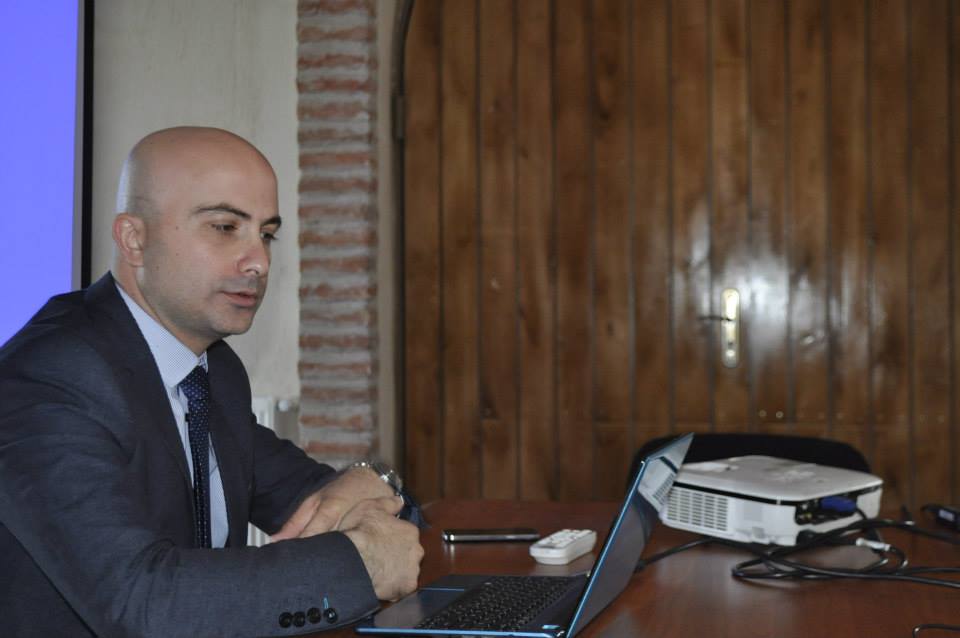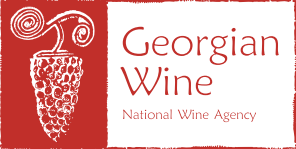
Recently the National Wine Agency presented the Agrarian Issues Committee of the Parliament of Georgia package of amendments to the law On Vine and Wine. Changes were prepared during a working session with active participation of the representatives of state, non-governmental and commercial sectors.
We talked to the Chairman of the National Wine Agency Giorgi Samanishvili about the changes in the new edition of the Law of Georgia On Vine and Wine.
- It is interesting to learn about your general assessment of improvements to the law On Vine and Wine. Do they concern the policy issues or focus on the technical details only?
The law On Vine and Wine was first developed in 1997. At that time the process of its elaboration involved participation of every important person from the field turning it into the first major reform directed towards transition from the post-soviet winemaking traditions to adopting modern trends. The second edition of the law was produced in 2002 when the same professionals included in it European approaches, eliminated the terms like “collection wines”, “trademark wines” and instead for the first time introduced the “designation of origin” and other terms, which are already well established in modern world enology. Later the law underwent some more changes but those were mostly of technical character or focused on the definition of details. For the time being the existing law On Vine and Wine is quite progressive. However, since 2002 we still are in need for filling the gaps between legislation in Georgia and the European Union.
There were no principal changes made to the law and its main structure and basic approaches to follow the modern, western trends stayed intact. That is, the ultimate policy did not change. Amendments were made to the classification of wines with consideration of the newest trends of modern and local winemaking, systems of control; new terms were introduced and several parts of the text that left space for double interpretation of the content were made more specific. We set the goal to make the law very simple to understand and implement.
As long as we have touched the issue of the goals… According to the preamble of the law On Vine and Wine its main goal is to combat falsification. We believe that today in 2015 falsifying as a problem and especially as a huge problem does not exist any more. Correspondingly, the main goal of the law is not the fight with falsification anymore but further development of the field and its upgrade to the well-developed modern global standards. We also included in the preamble the notion of importance of winemaking for Georgia not only from economic but historical and cultural perspectives as well. Types of local vines that are cultivated for several centuries and methods of wine producing are our wealth. Goal of the mentioned law is to make them popular and support development of winemaking.
While working on the amendments we took into consideration definitions of the International Organization of Vine and Wine (OIV), its normative acts and standards. The contents of the terms were adjusted to the international definitions. At the same time we made an attempt to make the law more adequate to the local experience.
- What is new in the law about the Qvevri wines?
With consideration of Georgian experience, classification of wines was added the term “Qvevri Wine”. Based on the new regulations wine needs to be produced in Qvevri at least until December of the harvesting year. This is a very liberal approach. We don't try to interfere either with the technology or the method. We don't demand from the producers to keep wine in Qvevri for six months. We just say, that in order to be able to label the product as Qvevri wine, one should produce it in Qvevri too.
More specifically, if a person has Qvevri (a vessel) with the capacity of one ton, he can produce one ton of Qvevri wine only. He has to process the grapes during the season and keep them in Qvevri until December. Producer can’t process new grapes in January. This is how we are going to prevent people from mislabeling wine as the Qvevri product when it is produced with the use of another method.
- Does text of the law include definition of the term Qvevri as well? Does the law correlate with the standard, which is prepared by GIZ for the development of a private sector in the South Caucasus?
According to our approach, a person who produces Qvevri wine is well aware of the fact that he should not damage the vessel. A working group from GIZ is involved in the process of preparing the standards for Qvevri production process. It is discussing numerous technological details with the experts of the field. However, it is not necessary to include the clarifications in the law.
- In addition to Qvevri, what are the other terms that were added to the law?
The text of the law now includes the term “amber-colored” as well. It is applied to the wines that are produced with the use of Georgian traditional method of maceration. Here too, we abstained from additional clarifications and restrictions because of diversity of traditional winemaking methods in different parts of Georgia. There are no restrictions in regard of limiting production of the “amber-colored” wine only to Kakheti region and not Mingrelia. Based on our regulations producers are given an opportunity to determine themselves exactly what are they going to label as the Qvevri or the “amber-colored” wine. All honest wine producers are following these rules.
Significant changes affected the terms about the places of origin of wines. Existing law defined the term in the following way: „ Quality Wine Produced in a Specified Region” and “Quality Wine Produced in a Specified Zone”. These are quite complex terms, which are overloaded with information and take their origin from older regulations of the European Union. In 2007-2008 the European Union introduced the changes that were directed at simplifying of the terms. We did the same: have got rid of the additional clarifications and introduced the following descriptions: „Wine with Protected Designation of Origin “ and „Wine with Protected Geographic Indication “. Now the terms sound exactly the same way as they are in the European regulations – PDO and PGI.
In addition, there were numerous smaller details that have been changed. For example, the term “lot” was made more specific in the rule on certifying etc. The policy remained the same but the law was made more adequate to the existing reality.
- Amendments to the law did not concern the wines only. What are the novelties that are related to the other alcoholic beverages?
We had a very big gap in the case of spirits. In general our regulations differed significantly from those adopted by the European Union and the OIV who provide very specific definitions of brandy, chacha and grape vodka. Our law was a kind of a hybrid of the soviet and post-soviet regulations. At the moment the law moved closer to the European regulations, which are very good at preserving traditions. Definition of chacha by the European Union is so clear that we did not need to make any changes to the law at all. In the case of brandy we had to clarify couple of technical details. For example, existing regulations did not specify the upper limit of the alcohol content. New edition of the law already includes this information in it.
- What information should be presented on the labels of wines and spirits according to the new edition of the law?
Labeling methods underwent several changes. Existing regulations concerned only those wines that were produced in Georgia and did not include the imported products. We added to the law a rule, which focuses on both: locally produced and imported wines.
Labels of locally produced wines that are to be distribution on the local markets should include only the required information: name of the product, alcohol, volume, name of the place of origin etc. In the case of export it’s up to the producers to decide which language to use on the label. Imported wines like the other products should bear a sticker with required information in the Georgian language.
- When will the amendments enter into force?
The law is already submitted to the Parliament and now everything depends on the procedures. Presumably, the changes will be adopted next year.
Interview was conducted by Keto Ninidze
12.06.15
© Georgian Wine Club, Wine Information Center.






